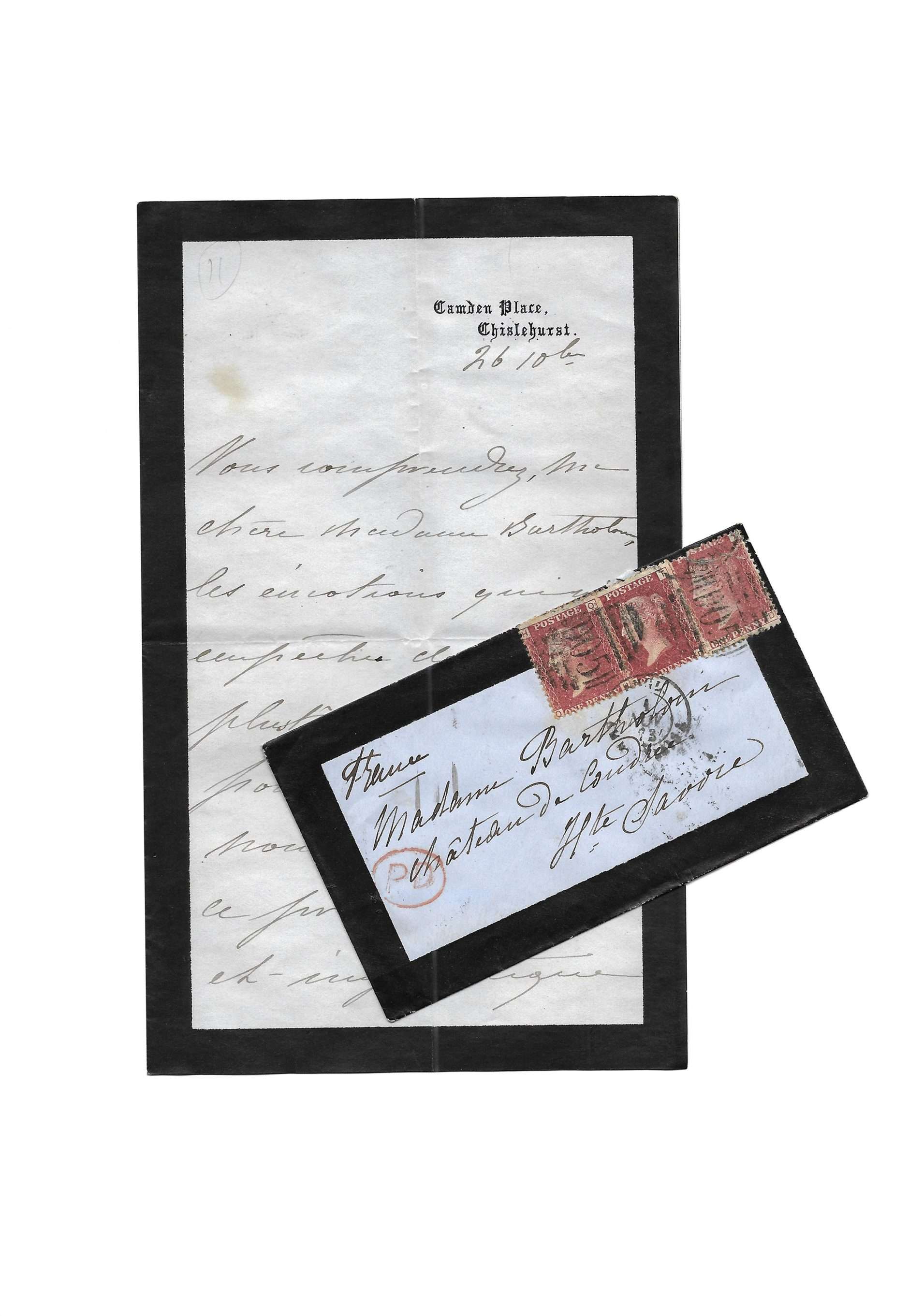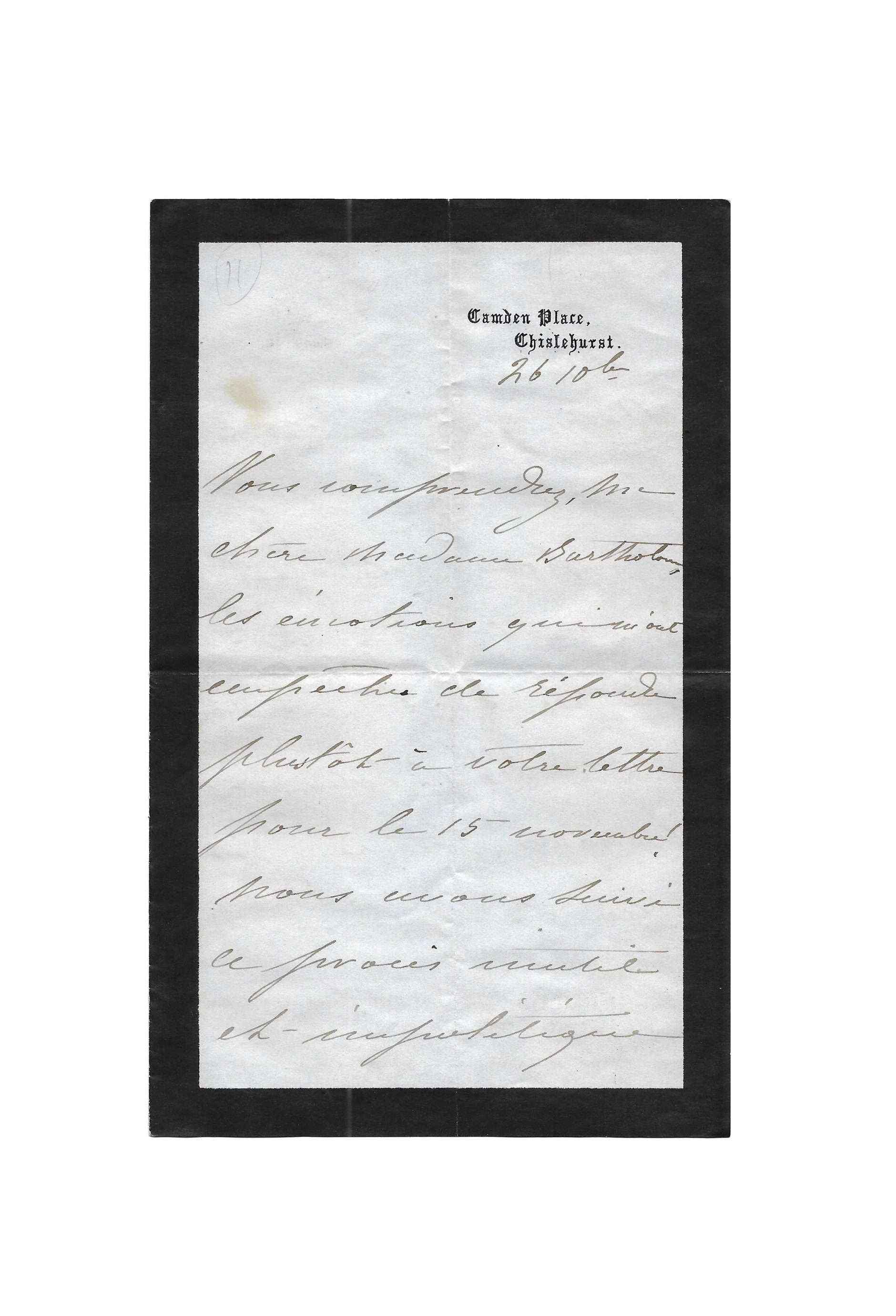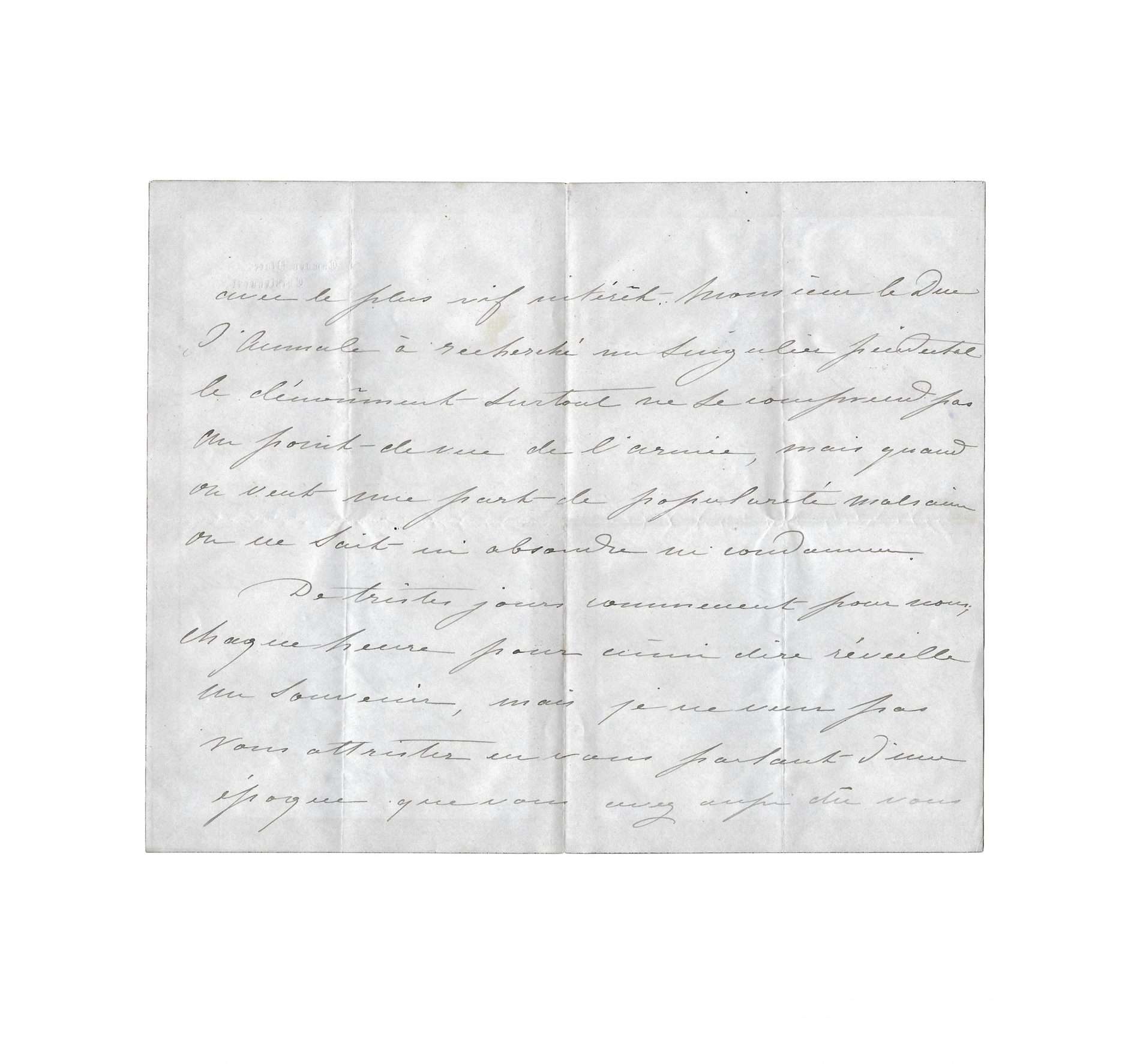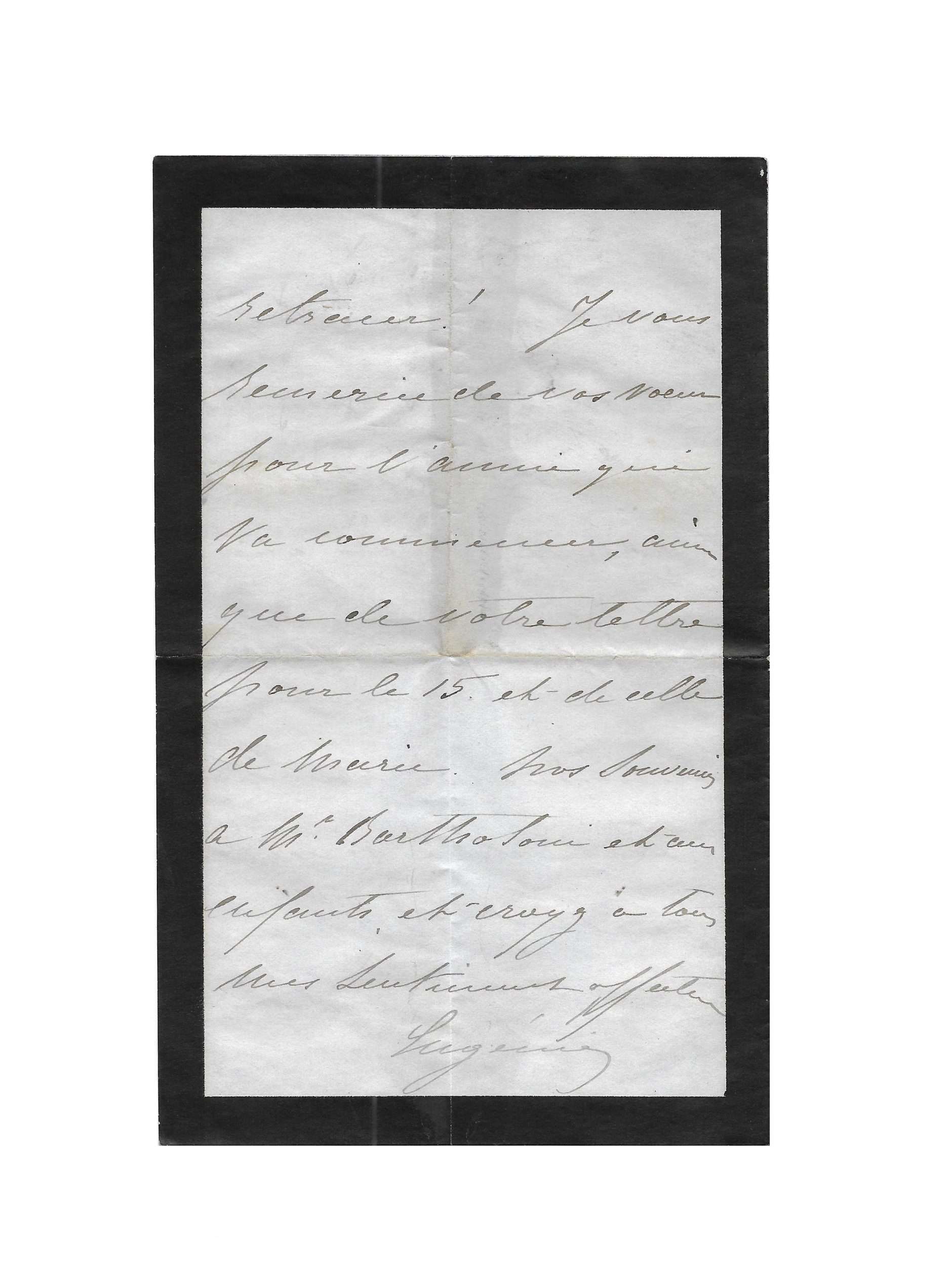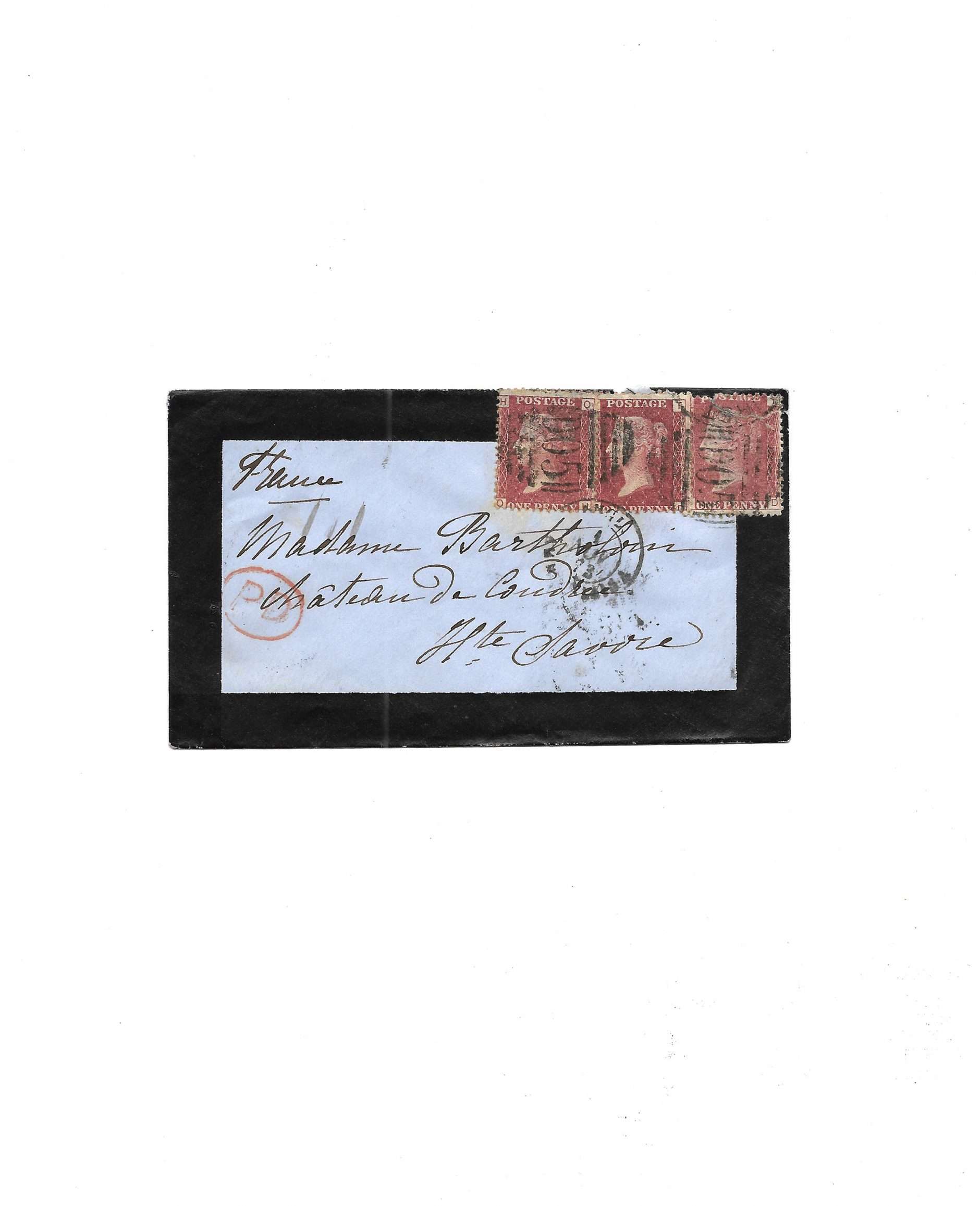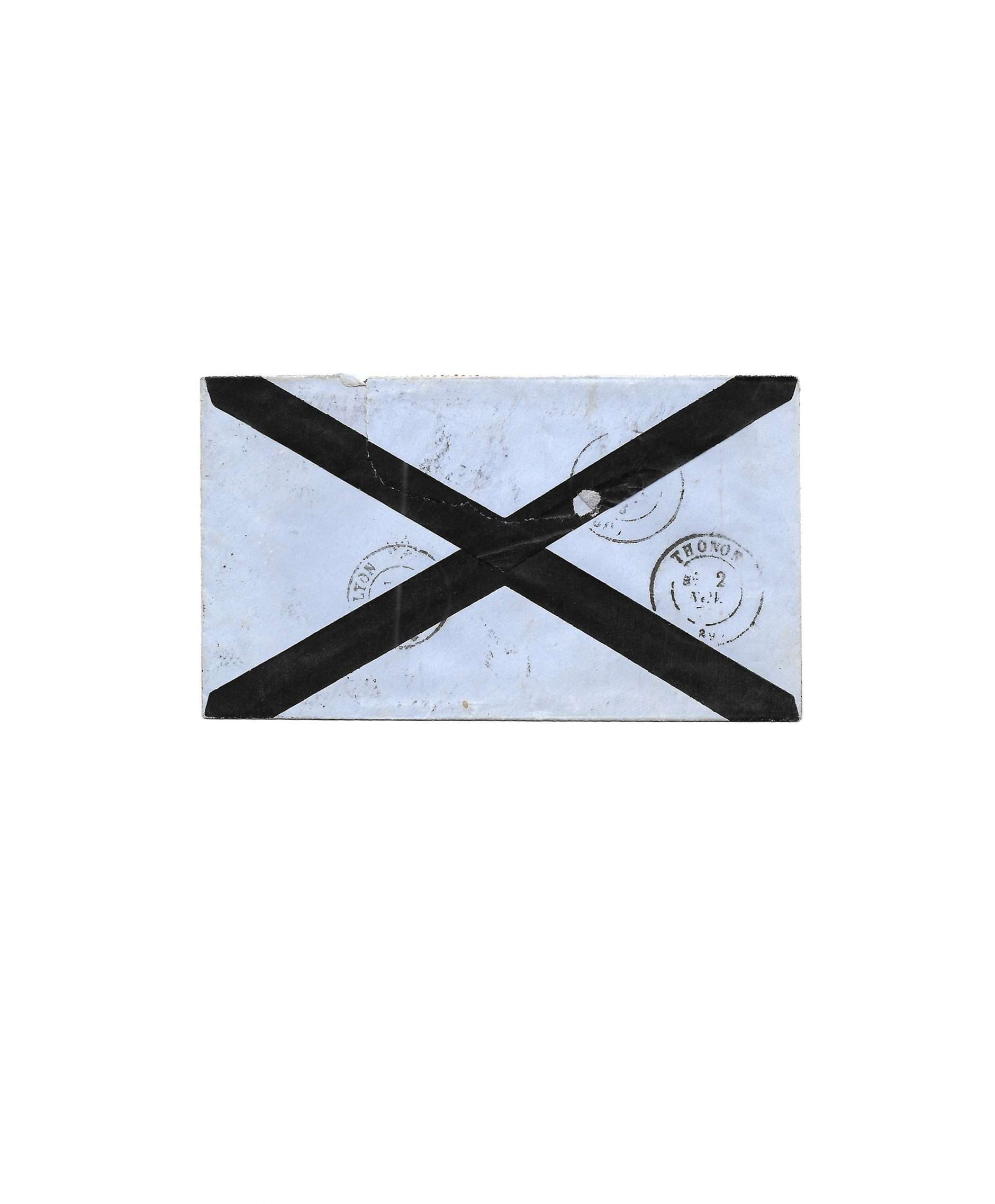MONTIJO (de), Impératrice Eugénie (1826-1920)
Autograph letter signed « Eugénie » to Marie-Thérèse Bartholoni
Camden Place, Chislehurst, 10 10bre [October 1873], 4 p. in-8°, mourning paper
« When you want an unhealthy share of popularity, you don’t know how to absolve or condemn »
Fact sheet
MONTIJO (de), Impératrice Eugénie (1826-1920)
Autograph letter signed « Eugénie » to Marie-Thérèse Bartholoni
Camden Place, Chislehurst, 10 10bre [October 1873], 4 p. in-8°, mourning paper
Autograph envelope (from the hand of the Empress) complete with its stamps
Light stain on fourth page
The Empress is moved by the ongoing trial of Marshal Bazaine, loyal to the Empire but nevertheless one of the main responsible for its fall during the Franco-Prussian War of 1870
« Vous comprendrez, ma chère Madame Bartholoni, les émotions qui m’ont empêché de répondre plus tôt à votre lettre pour le 15 novembre !
Nous avons suivi ce procès inutile et impolitique avec le plus vif intérêt.
Monsieur le Duc d’Aumale a recherché un singulier piédestal.
Le dévouement surtout ne se comprend pas au point de vue de l’armée, mais quand on veut une part de popularité malsaine, on ne sait ni absoudre ni condamner.
De tristes jours commencent pour vous ; chaque heure pour ainsi dire réveille un souvenir, mais je ne veux pas vous attrister en vous parlant d’une époque que vous avez aussi dû vous retracer !
Je vous remercie de vos vœux pour l’année qui va commencer, ainsi que de votre lettre pour le 15 et de celle de Marie.
Nos souvenirs à M. Bartholoni et aux enfants et croyez à tous mes sentiments affectueux.
Eugénie »
On 6 October 1873, Henri d’Orléans, Duke of Aumale (1822-1897), presided over the war council at the Grand Trianon of Versailles which judged Marshal Bazaine (1811-1888), commander-in-chief of the armies during the Franco-Prussian War of 1870. The latter will try to explain his capitulation in Metz on October 27, 1870 (having contributed to the defeat of France), in vain.
At the urging of the Duke of Aumale who had just sentenced him to death, the President of the Republic Mac Mahon (1808-1893) commuted his sentence to twenty years of detention and abolished the degradation that had been planned.
Goddaughter of Chateaubriand and lady-in-waiting at the Tuileries of Princess Julie Bonaparte, Madame Bartholoni (1833-1910) was, by her beauty, one of the ornaments of the Court of the Second Empire. Born Marie-Thérèse Frisell (1833-1910), she was the wife of Anatole Bartholoni (1822-1902).
Madame Bartholoni held a brilliant salon, which inspired Marcel Proust. The writer actively frequented it in the years 1897-1899. Proust courted, for a time, one of Madame Bartholoni’s three daughters, Louise known as “Kiki” (1857-1933), goddaughter of Empress Eugenie.
